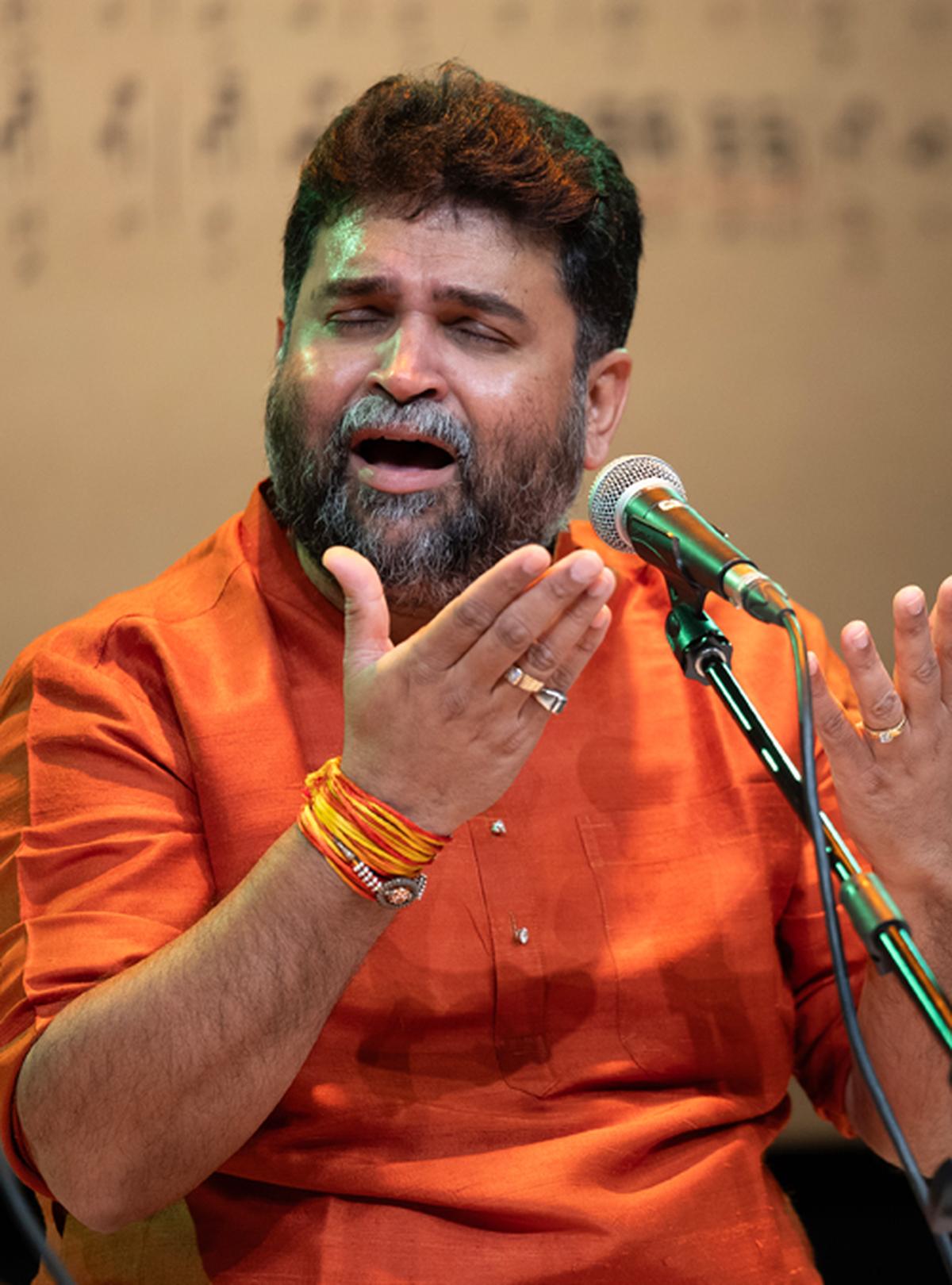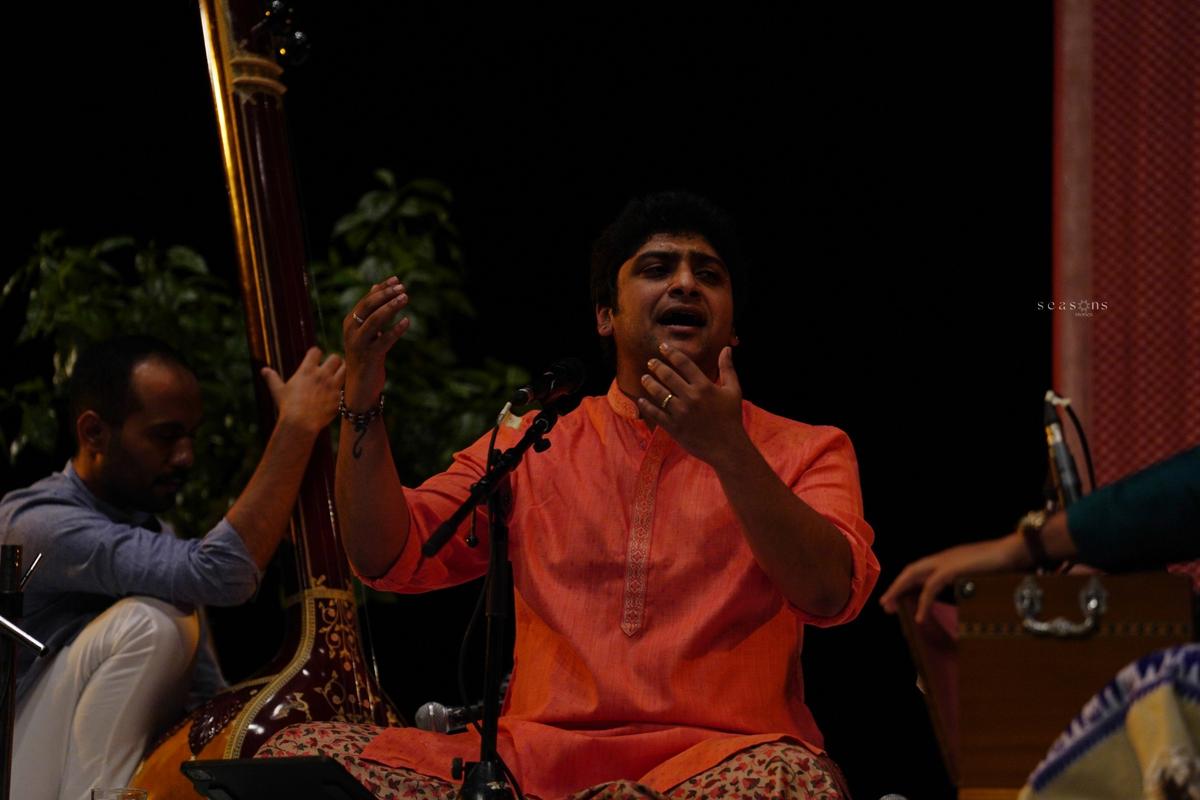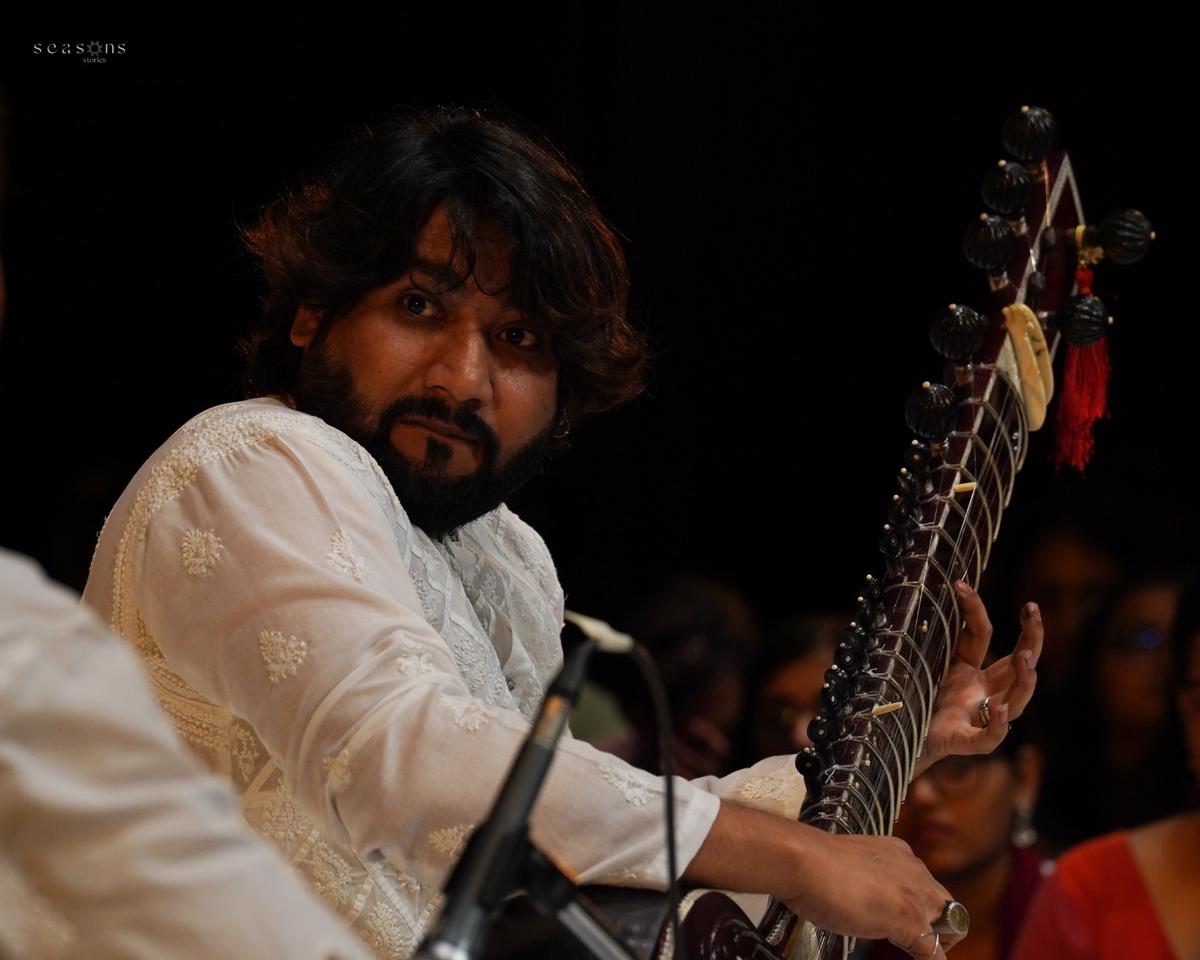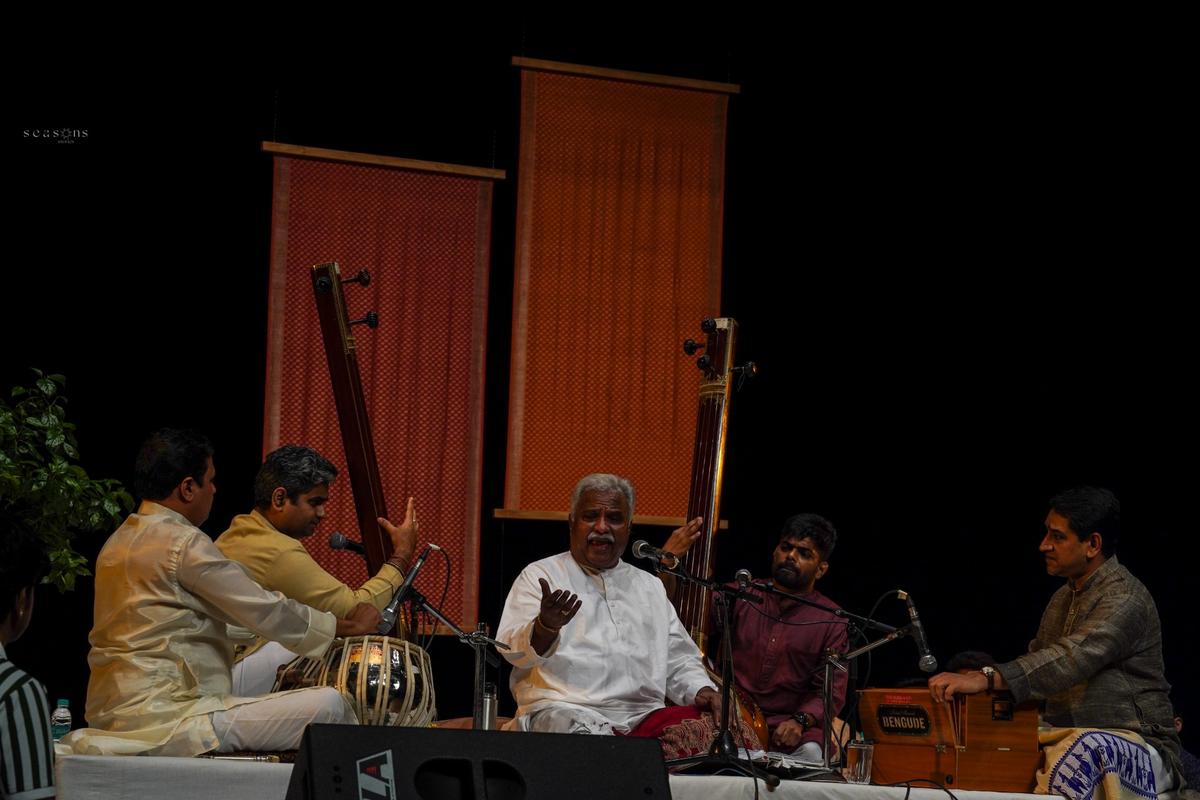The annual Pt Vishnu Digambar Jayanti music festival is always an eagerly awaited event in Delhi’s cultural calendar. One of the reasons in the impeccable choice of artistes. This year, young musicians, who are always featured in the festival, stole the show. Despite limited time, they impressed with their performances.
The festival opened with a sarod-sitar jugalbandi by Kolkata-based Kaushik Mukherjee and Kalyanjit Das, both exponents of the Senia Maihar gharana. Kaushik is currently learning from Pt Tejendra Narayan Mazumdar, while Kalyanjit from his father Pt. Kushal Das. The alap in raag Puriya Kalyan was calming, and was presented in a systematic and an unhurried manner. Kaushik, the elder of the duo played more impactfully in this section, slowly moving into the higher octave from the bass kharaj. In the jor section, Kalyanjit impressed with his gamak-laden phrases. Pt. Ram Kumar Mishra, sitting between the two, provided excellent accompaniment. Kalyanjit’s bolkaari and clarity of taans and Kaushik layakaari were notable In the drut section, Ram Kumar’s ‘na dhin dhin dha’ played with one finger, a speciality of his grandfather Pt. Anokhe Lal Mishra, drew appreciation.

Bhuvanesh Komkali
| Photo Credit:
Special Arrangement
The evening ended with Bhuvanesh Komkali’s vocal concert. His Indore-based disciple Varshita Bansiwal provided vocal support. On the tabla was Delhi’s Shambunath Bhattacharya, and on the harmonium, Abhishek Shinkar. Bhuvanesh began with raag Nand, a minor raag that he deftly secured from other similar raags. The vilambit Ektaal khayal was a traditional composition — ‘Govind been bajaye’. His leisurely exposition gave way to a faster Teen taal khayal composed by his grandfather Pt. Kumar Gandharva. Next, he played Jaldhar Basanti, created by his grandfather. This was followed by raag Basant. He ended with a Kabir bhajan. Bhuvanesh as always sings with an infectious passion; it is hard not to be taken along on his journey of music.
The next evening began with a concert by Bengaluru-based Siddhartha Belmannu, a disciple of Pt. Vinayak Torvi. His performance was excellent in terms of content and presentation. Appropriately, he sang a composition in raag Mian Malhar ‘karim naam tero,’ inextricably linked with Pt. Bhimsen Joshi, a legend of the Kirana gharana to which Siddhartha belongs. Singing with adaa, Sidharath’s brief auchar was impressive and set the tone for the concert. Gamaks, good aakar taans, soulful meends, clear enunciation, open-throated singing, a hint of drama, a fine sense of proportion — he has it all. ‘Bijuri chamake, barase megh’ was his drut khayal, followed by Ati Drut Ek taal’ composition.

Siddhartha Belmannu
| Photo Credit:
Special Arrangement
On the tabla was Pune-based Pranav Milind Gurav, whose playing was empathetic. Vinay Mishra (harmonium) was at his usual excellent self. Siddhartha sang ‘Kahe ko ab tum aaye’ in Sohni. The influence of the Agra style of singing was clearly visible in his vision of the raag. His ‘pukar’ reminded one of Ustad Faiyyaz Khan. His breath control in the tarana, composed by his guru Pt. Vinayak Torvi, added a dramatic element to his singing. He concluded with a thumri in Kafi, ‘Ab to piya maanat nahi’, ending with the notes of Mian ki Mahar, beautifully linking to where he began.
Shashank played only the longer bass flute
| Photo Credit:
Special Arrangement
The evening concluded with a flute recital by Shashank Subramaniam. He was accompanied on the mridangam by Patri Satish and on the violin by L. Ramakrishnan. Shashank has performed many times at this festival, and he dedicated his concert to his guru in Hindustani music Pt Jasraj, whose anniversary it was. Shashank understands audience expectations. He only played the longer bass flute that audiences in North India prefer. Some find the tone of the smaller flute shrill.
He began with a brief racy varnam, a Tyagaraja composition in Raga Hamsanada. It came as a warm up piece. He moved onto raga Vagedeshwari, a beautiful combination of Jog and Khamach raags, to explain it in the context of Hindustani music tradition. After a ragam tanam pallavi, Shashank moved on to his compositions with excellent support from the accompanists. He ended with a tillana in Sindhu Bhairavi, that he had composed. His concert was lyrical, and exciting, in turn.

Adnan Khan trained under his father Ustad Sayid Khan and vocalist Ustad Mashkur Ali Khan
| Photo Credit:
Special Arrangement
The next morning started with Mian ki Todi by Delhi-based Adnan Khan, a disciple of his father Ustad Sayid Khan of the Delhi gharana and vocalist Ustad Mashkur Ali Khan of the Kirana gharana. Adnan’s delicate touch is matched by his mature understanding of his instrument, a result of years of intensive riyaaz, making him a rounded performer. His expansive ‘alap jor jhala’ was deeply satisfying; his two compositions were somewhat similar in construction. Adnan’s ‘choot’ taans were executed well. He was accompanied on the tabla by Delhi gharana exponent Babar Latif Khan, son of the late Ustad Latif Ahmed Khan.

Pt. Venkatesh Kumar
| Photo Credit:
Special Arrangement
Pt. Venkatesh Kumar ended the festival with Komal Rishabh Asavari, Deskar and Vrindavani Sarang; all executed crisply, within 20 minutes each. This brevity which has now become his norm, but leaves one yearning for more. His ‘thumak chalat Ramachandra’ was also executed at a faster gait than usual; he concluded with Bhairavi.
Published – September 16, 2024 04:06 pm IST
#Vishnu #Digambar #Jayanti #continues #uphold #Hindustani #music #tradition
